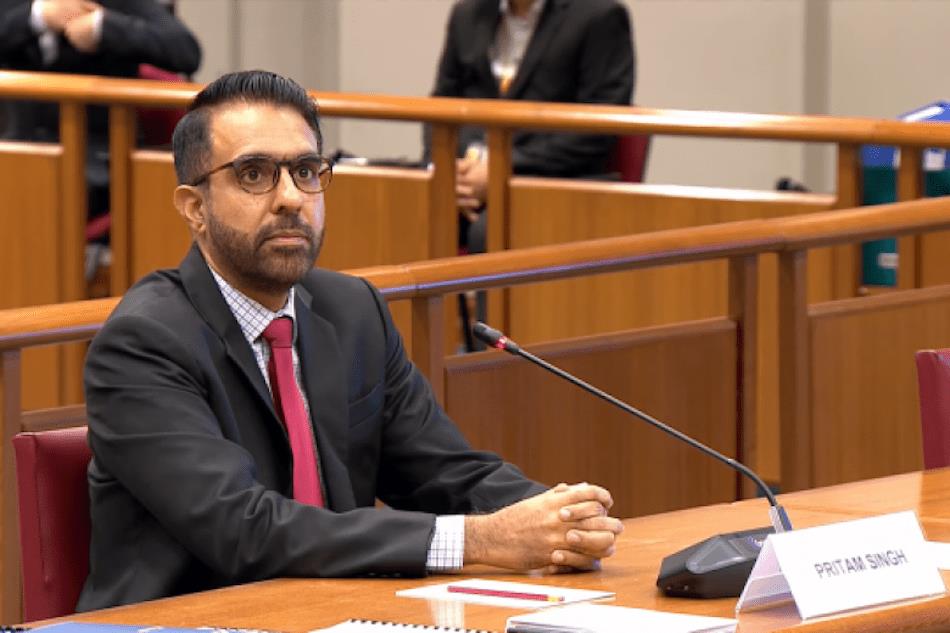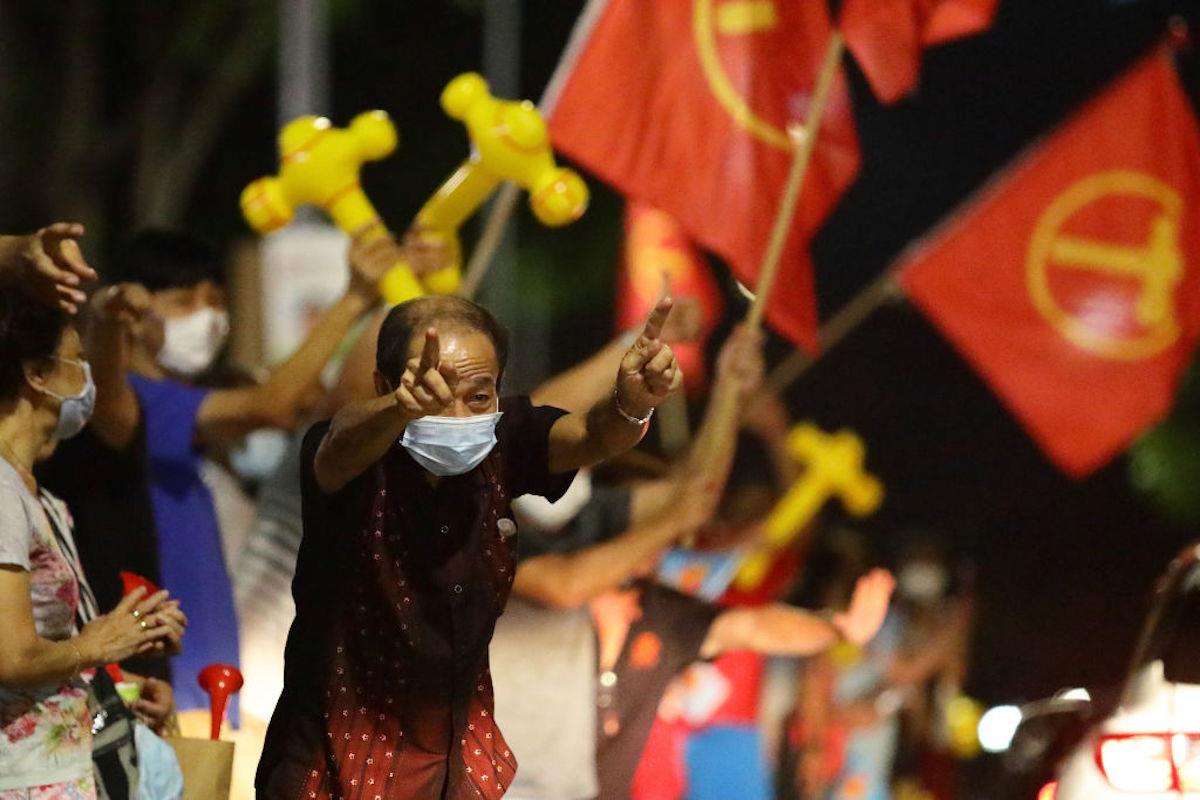(MENAFN- Asia Times)
SINGAPORE – Less than 18 months after making historic electoral gains, Singapore's largest opposition party, the Workers' Party (WP), has been shaken by a controversy that threatens its credibility and put its leadership at risk of being sanctioned with fines or jail by the city-state's legislature, where the ruling party commands a supermajority.
The scandal has dominated Political headlines in Singapore since November 1, when WP lawmaker Raeesah Khan admitted she lied in parliament about accompanying a sexual assault victim to a Police station where the latter was allegedly mocked and treated insensitively by a police officer handling her complaint.
After sharing the anecdote in August during a debate on women's empowerment, Raeesah came clean three months later, confessing she did not follow the victim to the police station, but heard the account in a sexual assault survivors support group she was part of, nor did she have the victim's consent to share the account publicly.
Raeesah, 28, said she attended the group session because she had been sexually assaulted at the age of 18 while studying abroad. Telling the complete story, she implied in a tearful speech, would have required publicly outing herself as a sexual assault victim, an experience she had not told her parents about at the time.
The revelation stunned those used to placid politics and disappointed progressive millennials who had high expectations in Raeesah, a social activist who became Singapore's first female minority opposition candidate and its youngest parliamentarian last year.
She announced her resignation from the WP on November 30.
But the controversy has snowballed since. Raeesah's admission led to her being referred to a parliamentary committee, where she leveled serious allegations against the WP's leadership, claiming that party chief and opposition leader Pritam Singh, along with two other senior party members, had instructed her to maintain the lie.
Raeesah claimed that Singh, after learning that her anecdote had been fabricated, specifically told her to take the falsehood“to the grave” to avoid bringing disrepute to the party. Singh, in turn, categorically denied instructing Raeesah to avoid telling the truth and described her claim as an“utter fabrication” during hearings into the matter.
The saga has spiraled into the first major crisis for the WP since last July's election when it won 10 of 93 seats – the best performance by an opposition party since Singapore achieved independence – by casting itself as a check on the ruling People's Action Party (PAP), which has governed the island nation without interruption since 1959.
In recognition of the electoral milestone, Singh was formally designated as the country's first Leader of the Opposition in a move that signaled the PAP's recognition of voters' desire for political pluralism after some 60 years of one-party rule.
But claims of the WP's leadership being complicit in a falsehood have put the party on the back foot.
A fact-finding probe into the scandal by the Committee of Privileges (COP), a panel comprised mostly of PAP lawmakers, has nonetheless garnered online criticism over perceptions of operating in a partisan manner, particularly after Singh was subjected to a testy and at times adversarial nine hours of questioning over the incident.
Despite being referred to the committee, Raeesah was questioned for only three hours. Crucially, the COP can recommend that an errant lawmaker face imprisonment for the duration of the current session of parliament or a fine of up to S$50,000 (US$36,856) to punish dishonorable conduct, abuse of parliamentary privilege or contempt.
While news of the scandal appeared to initially take the shine off the WP, observers noted that sentiment shifted once footage of the proceedings circulated on social media, with netizens heaping praise on Singh for deftly fielding questions and maintaining his composure throughout the lengthy deposition.
“I think the PAP has overplayed its hand by engaging in what I would say is almost a witch hunt against the WP,” said Bridget Welsh, an honorary research associate at the University of Nottingham Malaysia Asia Research Institute, describing the panel's grilling of Singh as“over the top” and“disrespectful to the people who voted for the opposition.”
“It shows that the PAP is not willing to accept a more open political process, a more consultative political process,” she argued. Welsh added that while the scandal has not helped the WP, the depositions had strengthened the party's political base and raised questions about double standards in the pursuit of accountability.

Workers' Party chief Pritam Singh speaking at the Committee of Privileges hearing on December 10, 2021. Photo: Screengrab
One such parallel Singh touched on during his testimony was when a cabinet minister who addressed parliament last October misrepresented the scope of personal data protection offered by the government's contact tracing app, TraceTogether, only to issue a correction and publicly apologize months later, a parliamentary probe was not sought.
Others have pointed to the committee's findings, which revealed a number of questionable decisions on Singh's part, not least the fact that senior WP leaders had allowed Raeesah's falsehood to go unchecked for three months and withheld knowledge of the matter from the party's Central Executive Committee (CEC) and its other elected lawmakers.
Raeesah initially confessed her lie to Singh and two other senior leaders on August 8, roughly a week after she shared the anecdote in parliament. The WP chief testified that he had wanted to give Raeesah time to address her sexual assault experience with her parents, but insisted he expected her to take responsibility by setting the record straight.
At a press conference earlier this month, Singh conceded that giving Raeesah the leeway to decide when to clarify the truth was a“judgment call” that may have resulted in more damage to the party's reputation. Analysts say there is no doubt that the WP leadership's credibility has been thrown into question as a result of the controversy.
“While Singh managed to regain some goodwill after his responses during the COP's questioning, it remains to be seen if this is sufficient or if more damaging revelations come out in the course of the COP investigation,” said Nydia Ngiow, the managing director of the BowerGroupAsia strategic consultancy in Singapore.
“It remains to be seen whether the WP will still be trusted by constituents going forward,” Ngiow added. “Much will depend on the ability of the WP leadership in convincing its own members – as well as the general public – that they did their utmost in stemming the issue of Raeesah Khan's mistruth from the onset.”
While vocal supporters of the WP have rallied around the party's embattled leaders, observers say their handling of the saga has stoked mistrust and divisions within the party, which could have political consequences for the current slate of WP leaders when the party's top decision-making body, the CEC, holds an election next year.
Raeesah, whose short-lived career as a legislator lasted only 16 months, has continued to place responsibility for the issue on party leadership. While some among the local commentariat have sympathized with her past trauma as a sexual assault victim, she has also been criticized for failing to assume ownership over her own mistakes.
Mustafa Izzuddin, a senior international affairs analyst at consultancy firm Solaris Strategies Singapore, described the scandal as“a test of political resilience of the existing WP leadership” – which had carefully positioned the party as a“trusted alternative” to the PAP –“on whether they can continue to be a leading credible voice of opposition politics.”
COP hearings have lasted more than 30 hours since proceedings started on December 1. The committee has so far issued six interim reports following the testimonies it has heard so far, but has not yet come to any conclusions. Observers do not rule out the possibility of the WP leadership being sanctioned by parliament over the matter.

Supporters of the Workers' Party celebrate after its July 2020 election showing. Photo: Suhaimi Abdullah
Describing the ongoing probe as being“in the public interest,” Mustafa cautioned against crippling punishments such as jail time for the opposition leadership, telling Asia Times that “middle ground voters will be looking at penalties commensurate with the offense rather than [measures that] engender a climate of domestic political fear.”
The WP also faces a separate predicament involving a civil suit over the mismanagement of S$33.7 million ($24.6 million) of municipal funds, claims that Singh and two other defendants say are unfounded. The case is being deliberated by the Court of Appeal. If declared bankrupt, Singh and party chair Sylvia Lim can lose their parliamentary seats.
While the COP is unlikely to shirk from meting out punishment after it concludes its investigation, said Ngiow,“the PAP will have to tread a fine line in dispensing with disciplinary actions proportionate to the wrongdoing arising from the saga, bearing in mind that Raeesah Khan has resigned from the WP and is no longer a member of parliament.”
“The ruling party is well aware of public perceptions of its high-handedness in the past, and they will do well to differentiate between the individual and the party so as not to score an own goal which could backfire on them in the long-term, particularly against a backdrop of greater calls for fairness and a more level political playing field,” she added.
Welsh, the University of Nottingham academic, lamented the fact that issues facing women and victims of sexual assault that Raeesah had originally sought to address in parliament have been eclipsed by the still-unfolding political drama.“Singapore should be focusing on the issues she raised rather than punishing her,” she said.
MENAFN28122021000159011032ID1103454863